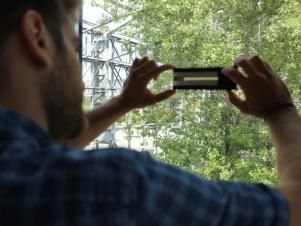To achieve energy savings and reduce CO2 emissions, the STEPPING project helped public authorities in seven Mediterranean countries renovate and retrofit their buildings using innovative financing in the form of energy performance contracts (EPC). The project provided training and created tools, guidelines and policy recommendations to promote the use of EPCs in the Mediterranean area.
- 30 March 2021
"STEPPING helped us approach energy efficiency in the right way, with professional support."
The nine project partners brought together energy service companies and 74 local authorities in Italy, France, Greece, Malta, Portugal, Slovenia and Spain. The aim was to attract EUR 18.7 million in investment and renovate 170 publicly owned buildings. By the project’s end, investments worth EUR 9 million had been made. Three EPC tenders were awarded, resulting in the refurbishment of 94 buildings in 20 Italian municipalities.
Overall, the project demonstrated the effectiveness of EPC in attracting investments in energy efficiency. It was not possible to implement the practice in all Mediterranean countries because of constraints such as political and administrative bottlenecks, the current level of market maturity and existing financial frameworks.
A foundation for growth
EPCs use the savings achieved through energy efficiency measures to repay the cost of installing them. They are focused primarily on the results the investment can achieve and allow building owners to avoid upfront capital expenditure. Local authorities however lack the skills and knowledge to draw up and manage such contracts. The STEPPING project offered them the necessary technical, administrative and legal support.
Four tenders were advertised during the project’s duration, three of which were awarded by the project’s end in 2019. All were in Italy: two worth EUR 2.7 million were implemented in the Piemonte region, including one at the National Institute of Metrological Research, in Turin, and another in Modena worth EUR 6 million.
In France, two investment projects prepared tendering processes in 2020. Two other projects were scheduled for launch in 2021. Based on the STEPPING results, energy and environmental agency Aura-EE, in the Auvergne-Rhône-Alpes region, was selected for the BAPAURA development assistance project. Funded by Horizon 2020, the project foresees setting up nine one-stop shop services to renovate 115 public buildings in three years, for a total investment of EUR 23 million.
In Greece, most of the investment plans designed were realised with the help of the ERDF. In Slovenia, all buildings considered in STEPPING were renovated as planned, although not with an EPC.
Training and replication
A total of 32 EPC training sessions for 280 people – staff at local authorities and professionals in the building sector, including architects and engineers – were held. The project released EPC policy recommendations, guidelines and a simulation tool. These are intended to ensure that the project can be replicated in other parts of Europe.
The STEPPING EPC simulation tool is used by the Science and Technology Park for the Environment, in Turin to assess the financial sustainability of projects. A new European City Facility application was submitted using the tool.
The EPC MED Platform allows anyone with an interest in the topic to find more information. Lastly, the project was presented during 61 events organised by other institutions, attended by 3 125 participants.
Total investment and EU funding
Total investment for the project “Supporting The EPC Public Procurement IN Going-beyond (STEPPING)” is EUR 1 943 112, with the EU’s European Regional Development Fund contributing EUR 1 651 645 through the “Interreg Mediterranean” Operational Programme for the 2014-2020 programming period. The investment falls under the priority “Foster low carbon strategies and energy efficiency”.

